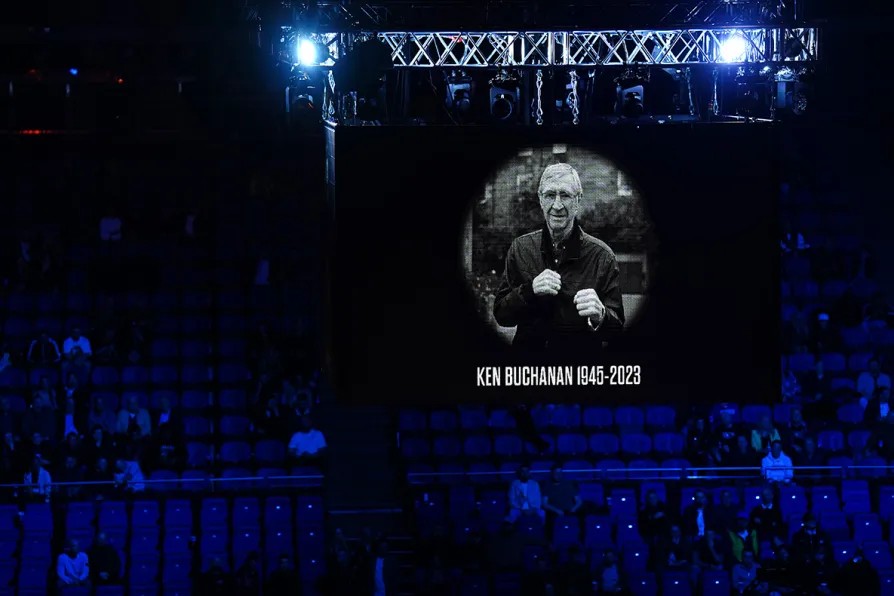
 Tributes are given to former Scottish professional boxer Ken Buchanan, who died at the age of 77, at the Millennium Dome London
Tributes are given to former Scottish professional boxer Ken Buchanan, who died at the age of 77, at the Millennium Dome London
KEN BUCHANAN’s death at age 77 has seen his legacy celebrated across the entire boxing world, which given his remarkable career has been more than justified.
In his pomp, and still today, Buchanan was more respected, appreciated and revered in the US than he ever was in the UK. Perhaps, considering that his most memorable performances took place in the US, this is understandable. Perhaps.
Indeed, not many fighters can claim to have held the unofficial title of King of Madison Square Garden during their careers. The acknowledged Mecca of boxing, New York’s Madison Square Garden (the Garden) in its heyday was an arena where even the most accomplished of champions and contenders were liable to be overwhelmed by the very fact of fighting there. And many of them found themselves leaving the ring to a chorus of boos from the most hard-to-please-fans in the world in response to a lacklustre performance.













